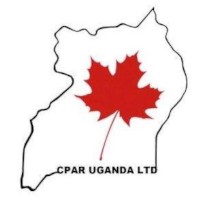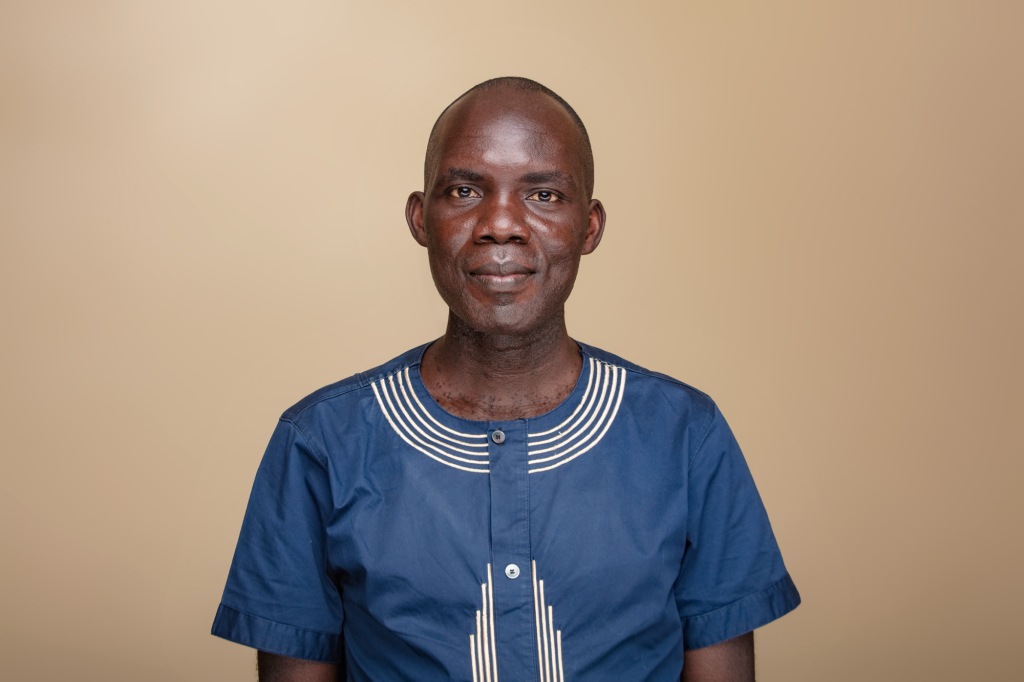At school the expectation of the young people is much – I am getting out, I get a good job, I will get a good car, you know, I will have a lot of money. But from the first day, after graduation, when there is no job, the expectations begin to wane. They become frustrated and some of them begin to do very many things – alcoholics and all that.
When I work with young people, I always encourage them to do one thing. There is always a statement which they say: “please include us in decision making spaces.” But I always tell them, there is nothing like include us. Nobody will call upon you to come to these spaces.
 Mr. Rama Omononya giving his speech at the launch of our Challenging Categories project at our Lira Learning Centre.
Mr. Rama Omononya giving his speech at the launch of our Challenging Categories project at our Lira Learning Centre.
It is you to find how to fit within those spaces. And how you find the value that you can add into them – that depends on how much time you spend doing productive things. One of the arenas you hardly see young people is events such as budget conferences.
The time you spend scrolling on your phone, what are you scrolling on your phone?
The phone you are holding in your hand has more than ten thousand times the capacity the computer that NASA used to send man to the moon. Over ten thousand times the processing speed – that gadget you are holding. At the tip of your hand you have the whole world.
When you come to a space where you are needed, what are you going to talk?
And from there (what you talk) your participation will always be guaranteed. But you think you will be invited, “please come sit here and learn,” it will never come. Spaces are always exclusive and you have to earn the sitting.
 Dr. Epila Jackie of Lira University and Mr. Emmanuel Obonyo of DFCU Bank, Lira Branch, were among the distinguished guests at the launch of our Challenging Categories project.
Dr. Epila Jackie of Lira University and Mr. Emmanuel Obonyo of DFCU Bank, Lira Branch, were among the distinguished guests at the launch of our Challenging Categories project.
I like the self-help think of let us do this ourselves. We don’t have to be waiting for things to be done by government. We need to take these matters into our hands.
I am very excited about this project: “Challenging Categories: Educated Unemployed Youth as Institutional Innovators in Rural Uganda,” because of one thing. For a long time in my policy advocacy and influencing work, there is always a disconnect between the academia and then the policy implementation.
Universities all over the place churn out very many research reports, every year – from undergraduate, to masters, to PhD. How those reports, those research studies, meet the policy and practice is something that we have always been lacking.
 We are implementing our Challenging Categories project in partnership with Lira University and the University of East Anglia; with funding from The British Academy under the UK Government’s Global Challenges Research Fund.
We are implementing our Challenging Categories project in partnership with Lira University and the University of East Anglia; with funding from The British Academy under the UK Government’s Global Challenges Research Fund.
I am glad that in the project, you have infused the element of having the research part of the academia meeting with the policy implementation team. I think we shall be able to have a lot of good things coming out of this.
 This is the text of the speech that Mr. Rama Omonya gave during the launch our Challenging Categories project. Mr. Omonya is an advocate who does his practice in Kampala – he is one of the four partners in Agaba, Bulungu, Namusiitwa & Co. Advocates. He does policy analysis and helps in influencing policy on governance and young people. Some of the organisations that have called on his help include: Action Aid, Oxfam and presently CPAR Uganda has requested him to be on its policy working advisory working group for the Challenging Categories project.
This is the text of the speech that Mr. Rama Omonya gave during the launch our Challenging Categories project. Mr. Omonya is an advocate who does his practice in Kampala – he is one of the four partners in Agaba, Bulungu, Namusiitwa & Co. Advocates. He does policy analysis and helps in influencing policy on governance and young people. Some of the organisations that have called on his help include: Action Aid, Oxfam and presently CPAR Uganda has requested him to be on its policy working advisory working group for the Challenging Categories project.
Photo Credit: All photos featured in this post were taken by Emmanuel Owaraga as part of the team of our Challenging Categories Media Consultant, Mr. Philip Luswata.

